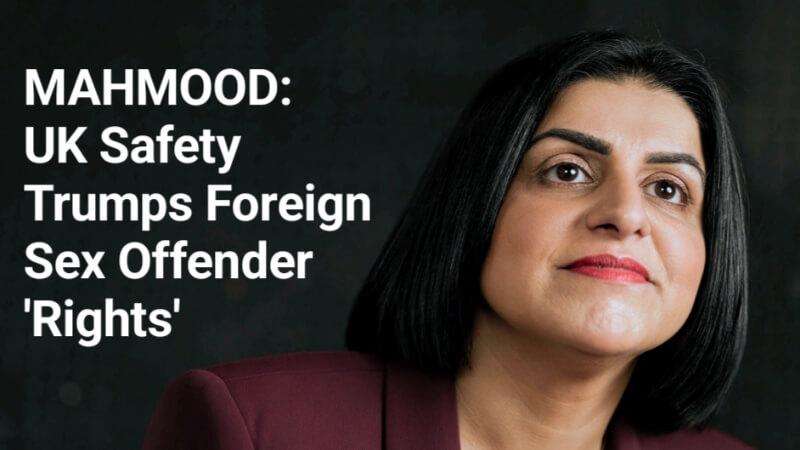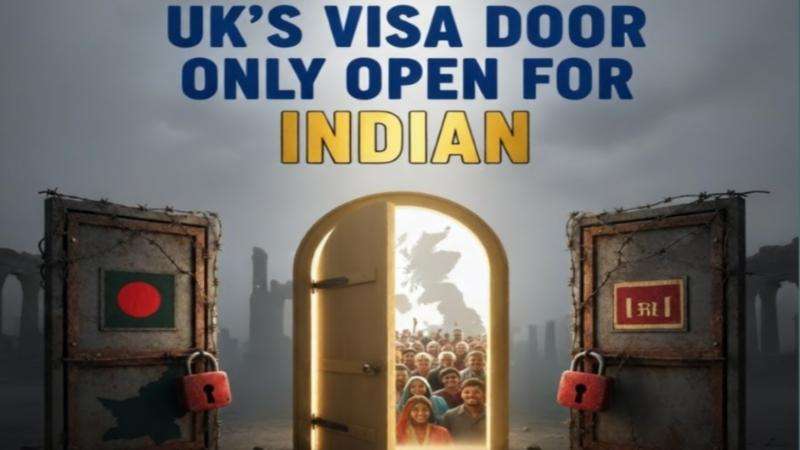Prime Minister Keir Starmer has initiated a strategic political gamble on his first major trade mission to India, categorically ruling out any increase in UK visas for highly skilled Indian workers. The refusal, delivered ahead of talks with Prime Minister Narendra Modi, signals that Starmer’s overriding commitment to cut net migration—a core political pledge—now supersedes the urgent demands of British business leaders for specialist global talent, daily Dazzling Dawn understands.
The move comes despite intense pressure from New Delhi, which reportedly sought enhanced labour mobility access as a key component of the recently secured £4.8 billion-a-year trade deal. Accompanied by over 100 top UK business chiefs from sectors including aviation (British Airways, Manchester Airport), finance, and creative industries (Bend it Like Beckham director Gurinder Chadha), Starmer sought to redefine the mission's focus. He told journalists: "The issue is not about visas. It's about... engagement and investment and jobs and prosperity coming into the United Kingdom."
The Political Imperative vs. Economic Reality-Starmer's decision reflects a profound policy incoherence in Westminster. The government’s priority is to exploit the vast Indian market—projected to be the world's third-largest economy by 2028—yet it simultaneously starves the UK economy of the highly skilled Indian workers necessary to facilitate that very growth. This stance aligns with the need to appease anti-immigration factions, specifically those putting intense pressure on the government from Nigel Farage’s Reform UK and Kemi Badenoch’s wing of the Conservative party.
Critics warn that this political posturing amounts to economic self-harm, actively restricting access to skilled talent, which directly undercuts the tax base and impedes the economic growth Starmer is striving to generate. This policy friction is highlighted by warnings of a looming £50 billion black hole in the government’s finances, which skilled migration could help mitigate.
The Broken Immigration Rules-The official framework, the Points-Based Immigration System (PBIS), is designed to prioritise skills via metrics like job offers, skill level, salary thresholds, and English language competence. Yet, the PBIS is effectively sabotaged when the political imperative to cut migrant numbers overrides its economic logic. This creates a disconnection between economic policy (focused on trade and growth) and immigration policy (focused on numerical reduction). The minimum salary threshold for most new Skilled Worker applicants has recently been increased to between £38,700 and £41,700, adding significant financial hurdles for businesses seeking to hire internationally.
Furthermore, Starmer stated the government is "looking at whether there should be a link between visas and returns agreements," effectively weaponizing visa policy as a transactional diplomatic tool. While he confirmed this would not apply to India—which has a successful returns agreement—this move creates instability in international relationships, making long-term planning difficult.
Disparities with Other Nations-The preferential focus on securing a reciprocal agreement with a rising global power like India contrasts sharply with the challenges faced by applicants from other Commonwealth nations. Unlike India, which has secured facilitated temporary business mobility routes for specific professionals (chefs, yoga instructors, musicians) and a Social Security Exemption, countries like Bangladesh, despite being a significant trade partner (£3.9 billion in trade, though far smaller than India's £25.5 billion target), have not secured the same bespoke trade-related visa benefits. Bangladeshi skilled workers remain subject to the general, and increasingly tough, PBIS rules, often facing higher visa refusal rates and lacking the same institutional backing to overcome the rigorous new salary thresholds and recent restrictions on bringing dependants, particularly in sectors like social care.
The Limited 'Open Door'-While Starmer resists a wider expansion of the skilled worker route, the trade deal does include targeted economic concessions for India. Notably, Indian temporary workers and their employers will receive a three-year exemption from National Insurance contributions. This measure, a targeted "open door" designed for specific economic benefits, highlights the complex, fragmented nature of UK immigration policy, which remains caught between the strategic need for global talent and the political pressure to reduce the net migration figure.
Ultimately, Starmer’s prioritization of the net migration number as the sole metric ignores the quality and necessity of migrants. Highly skilled Indian workers contribute significantly more in taxes and economic activity. By treating skilled professionals the same as unskilled economic migrants in the political narrative, the government's policy fails the fundamental test of national utility, jeopardising the very "launchpad for growth" he hailed the new trade deal to be.








.svg)

_6.jpg)